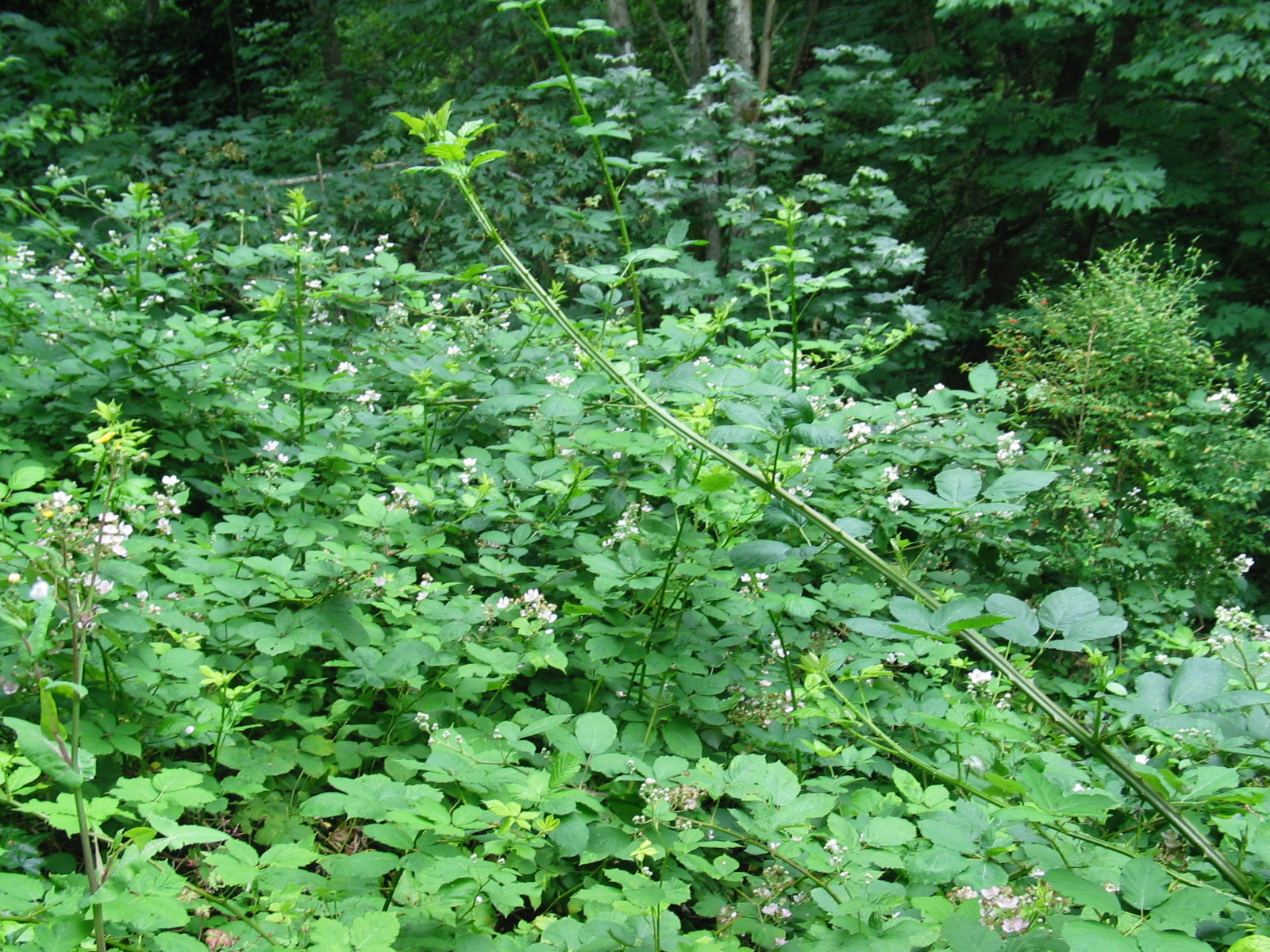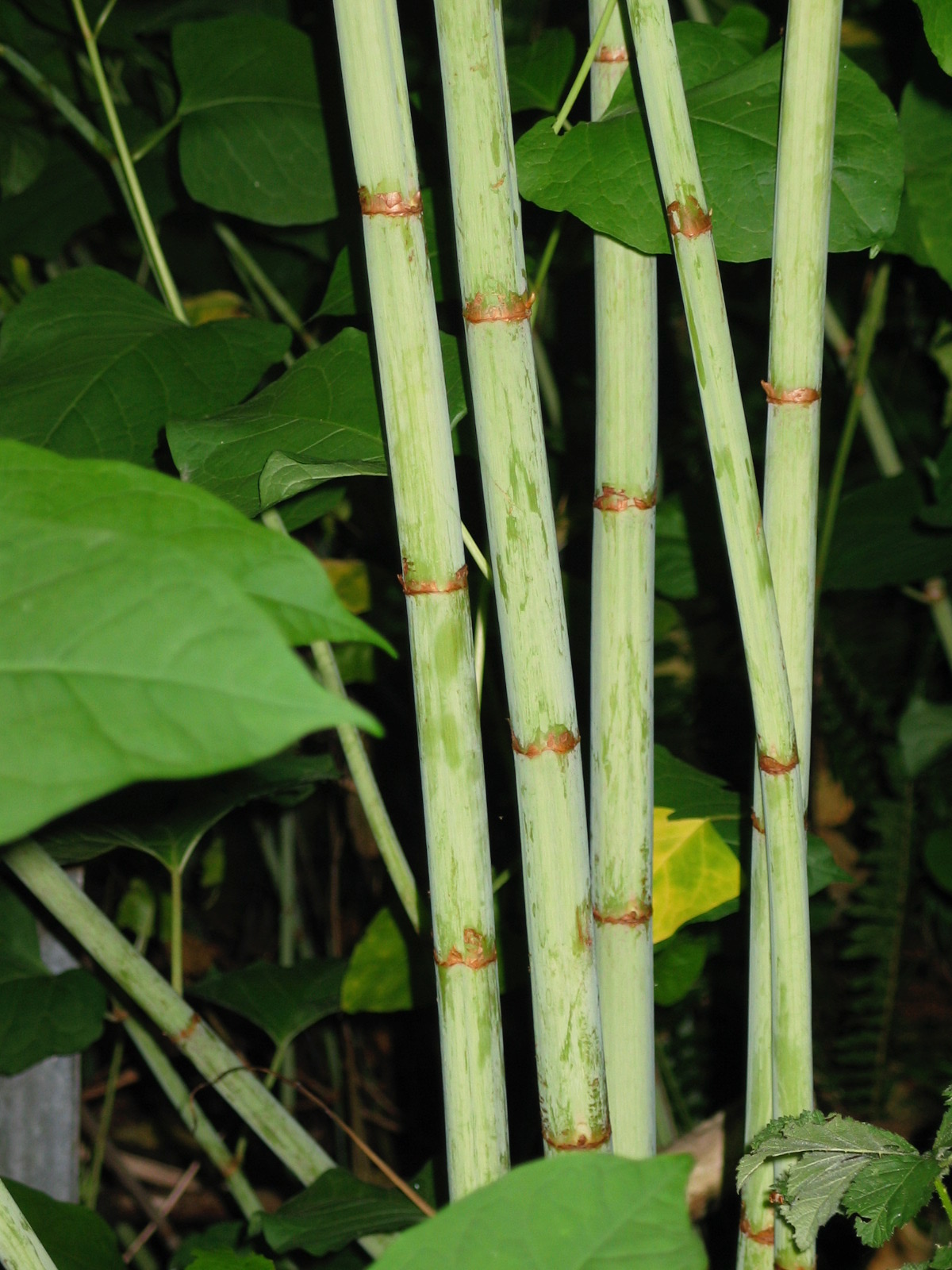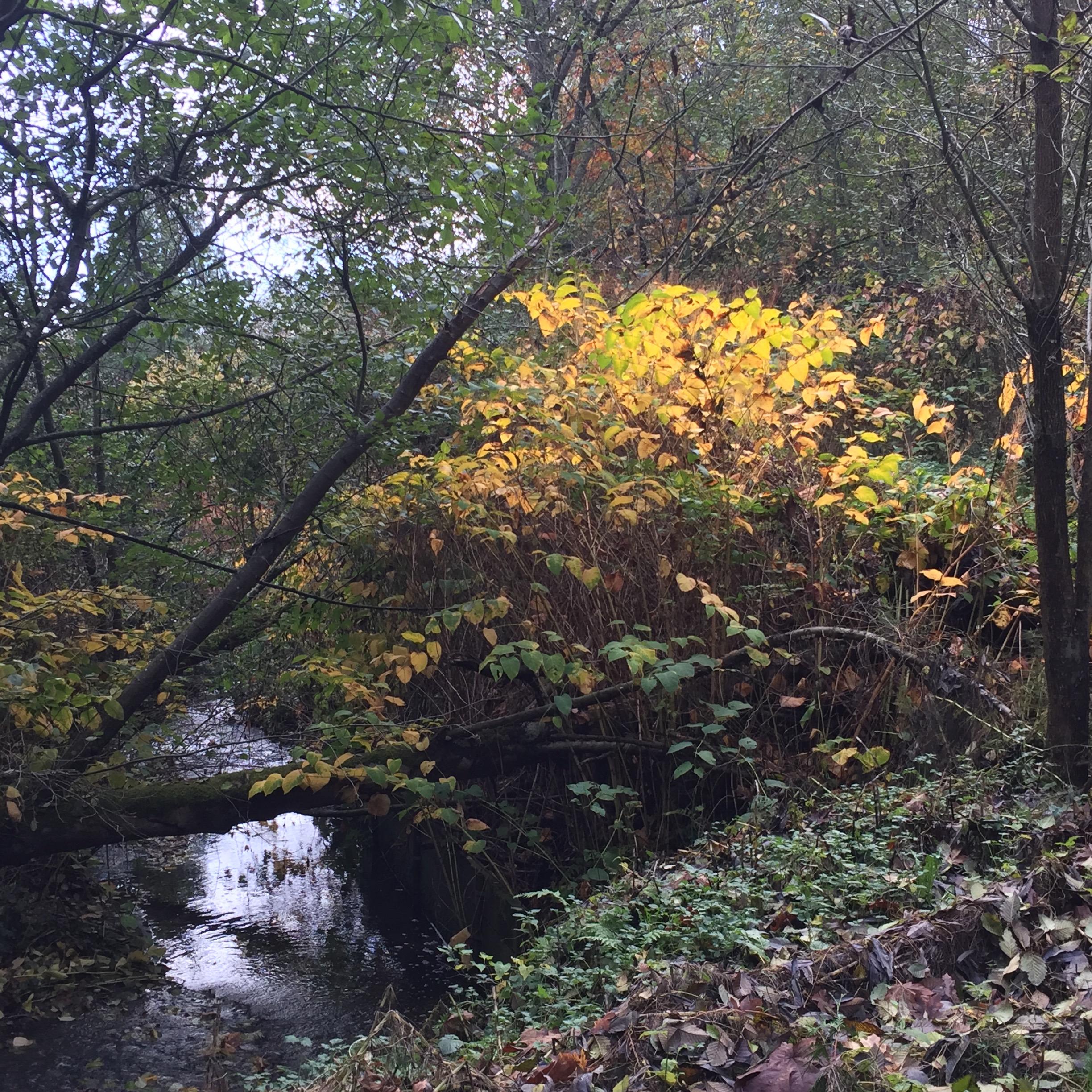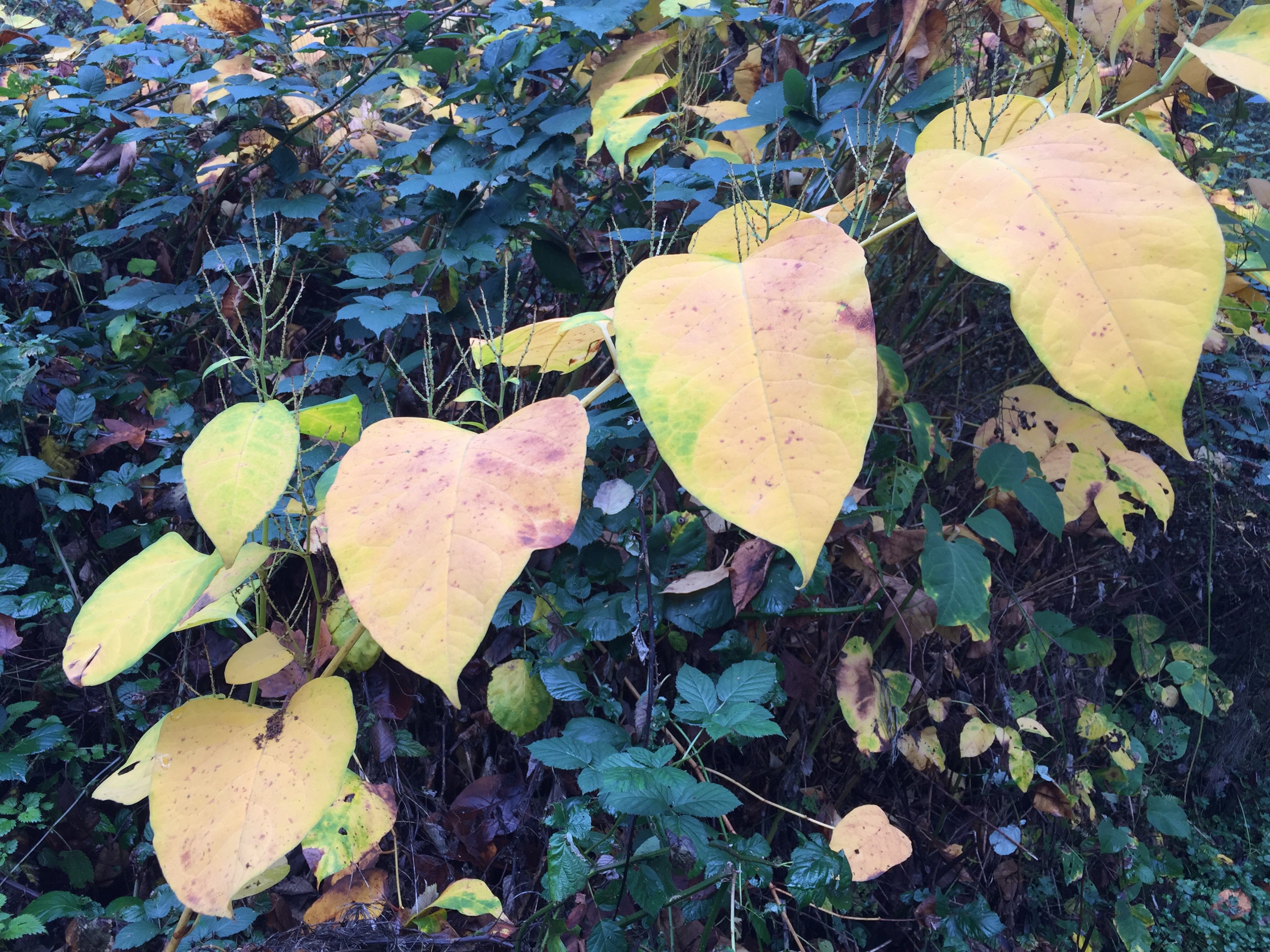Thornton Creek Noxious Weeds Knockout Project
by Gordon Werner | February 18th, 2019 |
Noxious weeds pose one of the greatest threats to the Thornton Creek watershed. Left untreated, they outcompete native species and can dominate invaded areas, disrupting the whole ecosystem. Thornton Creek is currently widely invaded by noxious weeds that are not mandated for control in King County such as knotweed (Polygonum spp.), Himalayan blackberry (Rubus armeneniacus), English ivy (Hedera spp.), holly (Ilex aquifolium), nightshade (Solanum dulcamara), English laurel (Prunus laurocerasus), and jewelweed (Impatiens capensis). Most of these species are well-established in the watershed and would require abundant resources to control. Knotweed was selected for this project for multiple reasons:
- It is not yet as widely established as many of these other weeds, and so is more feasibly controlled;
- It is extremely difficult to kill, requiring skilled application of approved herbicides or many years of painstaking labor;
- It easily spreads by rhizomes and fragments that flow to downstream riparian areas, posing a serious danger to the watershed if it is not better controlled soon; and
- It has extremely negative effects on riparian habitats, establishing a monoculture that reduces food sources for wildlife, lowers nutrient inputs into stream systems, creates bank erosion problems, clogs small waterways, and can damage structures such as foundations and roads.
Although there are four species of knotweed present in King County, all of them have similar characteristics and they are all proposed for control in this project. Knotweed requires a long-term, strategic, watershed-wide effort to eradicate, working with public and private landowners along the creek and all its tributaries to identify and treat infestations. The five other weeds included in this project—policeman’s helmet (Impatiens glandulifera), giant hogweed (Heracleum antegazzianum), purple loosestrife (Lythrum salicaria), shiny geranium (Geranium lucidum), and garlic mustard (Alliaria petiolata)—have all been found along the creek, are listed by King County for mandatory control, and have a high likelihood of successful control with ongoing intervention.
TCA brought together a partnership that includes King County, Seattle Parks, Seattle Public Utilities, the City of Shoreline, Earthcorps, and Forterra to address this problem. The group first met in September 2017 to discuss the need for a project like this, successful efforts to address the problem elsewhere, and the roles that the different parties might play in addressing it in the Thornton Creek watershed. All the parties were involved with isolated efforts to control knotweed, but were aware that, without coordinating their work, their individual efforts would be unlikely to succeed in the long term.
The parties agreed to develop a strategic plan to guide their common efforts, which was completed in March 2018. That spring, TCA distributed a flyer on the targeted weeds to all landowners along the creek and its tributaries.
Over the summer and fall, TCA led efforts to identify and map infestations of the targeted weeds on private as well as some public properties in the watershed, complementing the work of the partners on other public properties, where in some cases they had begun treatment efforts.
TCA also developed a Memorandum of Understanding to maintain the partnership over the long term, recognizing success would probably require at least a decade. All parties are expected to have signed this document by early 2019. Finally, TCA worked with King County Councilmember Rod Dembowski’s office to secure an $80,000 WaterWorks grant to fund ongoing management, outreach, assessment, and treatment for the project in 2019-2020. The grant, awarded in December 2018, allowed transfer of long-term project management to Forterra, which is better suited to that role given its experience elsewhere and its structure as a funded organization versus TCA’s status as an all-volunteer organization.
The Thornton Creek Noxious Weeds Knockout Project is a work in progress, but has accomplished a great deal in less than a year-and-a-half. King County is managing an interactive map that identifies all known infestations of the targeted weeds in the watershed, at
https://noxiousweeds.github.io/weedsurveys/thorntoncreek. Working with TCA, Forterra is preparing outreach and assessment efforts for 2019. Working with King County, Forterra is developing plans to initiate treatment of knotweed on private properties in late summer. Seattle Parks, Seattle Public Utilities, and the City of Shoreline will expand treatment and assessment efforts in the watershed in 2019, working with Earthcorps in some cases as a contractor. King County continues to work with landowners to identify and control regulated noxious weeds in the watershed.







If Parks and King County are TCA partners then why dont they help you out instead of planting and fostering noxious weeds at Jackson Golf Course? If they dont have time to reverse this misbegotten practice, Im sure there are many volunteers who would be happy to do it for them – if they would kindly let us onto the course.
Hi, Lucy,
Amazingly enough, an entire year has gone by without our seeing your message until now. I would be happy to contact Parks about this and see if we can stop this practice, but would appreciate some more detail before I follow up with them. Please feel free to contact me at jlombardwriter@gmail.com. I am TCA’s lead for this project.
Thanks for your concern, and my very sincere apologies for the long delay in getting back to you.